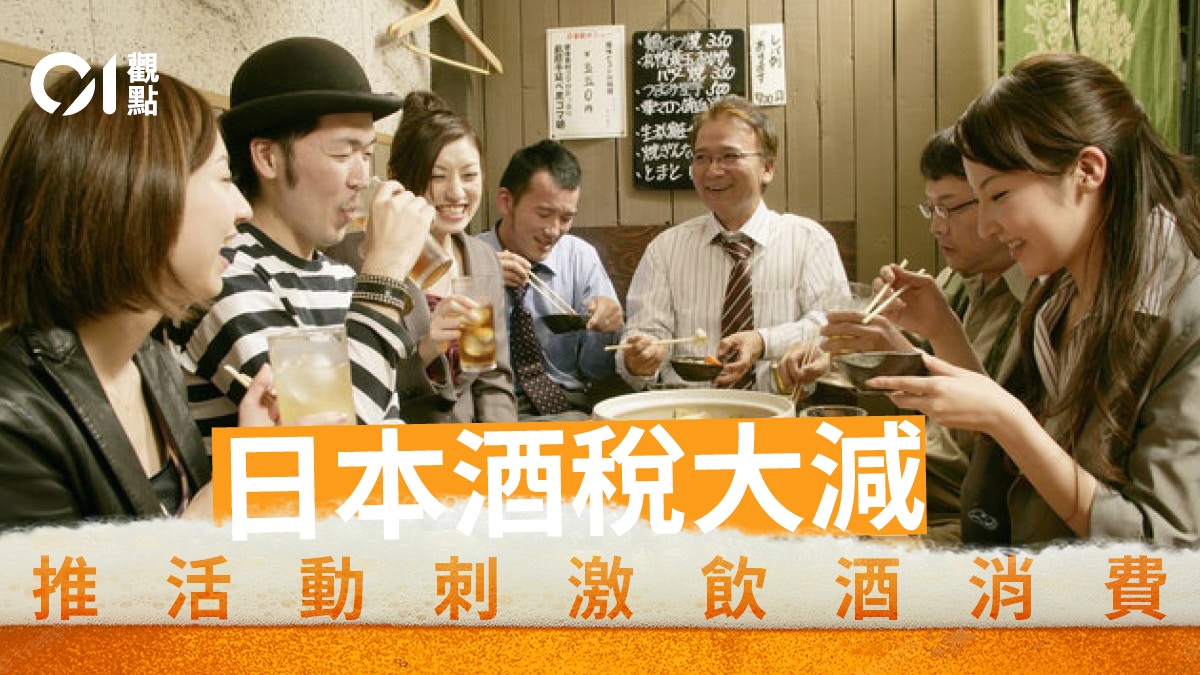Japan's Internal Revenue Service recently launched a competition called "Sake Viva!", asking young people aged 20 to 39 across the country for innovative promotion and sales techniques to stimulate consumption of alcoholic beverages produced in Japan.
The event stated that due to the long-term population decline and aging, coupled with the impact of the new crown epidemic, domestic alcohol consumption in Japan has been hit hard, affecting the consumer economy.
Since Japan has started a liquor tax, this will also hit the government's tax revenue. It is estimated that the IRS hopes to improve tax revenue by promoting related activities.
This Wednesday (17th), Bloomberg and other foreign media reported extensively on the event, including an analysis of changes in Japan's drinking consumption patterns and why the event has aroused much opposition in Japan.
In fact, drinking consumption is a declining habit in Japanese society. There is no future in promoting the revival of drinking consumption. The Japanese government's efforts in this issue are only half the effort.
Drinking consumption in Japan is on the decline
Since modern times in Japan, there has been a widespread consumption culture of drinking and socializing in the workplace as well as privately, and therefore the term "nomunication" has emerged.
This was especially true before the economic bubble burst in the Showa years, when companies and individuals often held cocktail parties, which boosted the development of Japan's brewing industry and the Japanese government's treasury revenue.
However, with the bursting of the economic bubble, the luxury drinking culture of the past is gone, and the younger generation is also disgusted with the company's entertainment culture, and drinking consumption has begun to shrink.
In Japan, there is a widespread consumption culture of drinking and socializing in the workplace as well as privately.
(Visual China)
Long before the outbreak of the new crown, domestic surveys in Japan have pointed out that fewer and fewer people in Japan regularly drink alcohol, and in fact the government is getting less alcohol tax revenue.
According to the earliest data that can be found at present, the alcohol tax alone recorded 1,961.87 billion yen in 1996 (the same below), accounting for 3.6% of the government tax at that time (the consumption tax generated by buying and selling alcohol has not been calculated), but by 2021, the alcohol tax Taxes have fallen to 1,132.1 billion, down 42.3% from 25 years ago, and their share of government tax revenue has also dropped to 1.7%.
Consumption patterns that rely on excessive drinking are not only unhealthy or prone to crime, but Japanese living habits have changed. The highlight of "drinking exchanges" and alcohol tax is no longer. The Japanese government is now spending its efforts to stimulate drinking culture and raise taxes. Out of time, it can only protect the vested interests temporarily, and it has little effect on raising government taxes.
It's no wonder that there are so many criticisms of the government's hosting of this event in Japan.
Stimulate new consumer desires with innovation
The premise of consumption is demand, and demand is dominated by desire and ability.
Japanese scholar Omae Ken has proposed that Japan has a "low desire society". People lose their desire to consume. They only need to spend 500 yen for a meal in a convenience store. Lack of effect.
The example of Japan also gives us inspiration.
When it comes to boosting consumption, relying on inherently old stuff to stimulate consumption won't do much.
With the rapid improvement of life in modern society, the basic desires of most people in advanced societies have been satisfied, and they naturally lose interest in excessive and repetitive consumption.
Just as in areas where food and clothing are an issue, drinking alcohol may be a pursuit; but where food and clothing are no longer an issue, drinking or not drinking may well be a personal interest.
In recent years, with the expansion of international disputes and the impact of the new crown epidemic on international exchanges, promoting local consumption has gradually become the main method to stimulate the economy. In recent years, the central government and even the Hong Kong government have often regarded expanding consumption as a way to stabilize economic development. coupons to stimulate consumption.
Consumption is undoubtedly the fundamental way to improve the economy, but to increase consumption, we must also face up to the problem that people will lose their desire for excessive or repeated consumption.
Its long-term consequences are more likely to deprive people of the will to compete and work, which will cause a chronic but rather severe blow to the economy.
New energy vehicles are a major new consumption item in the Mainland in recent years.
To solve the trap of consumption desire, we must not only emphasize consumption, but also make people want to consume. With the impulse and desire to consume, labor and economic growth will be stimulated.
And only innovation can solve the problem of consumer desire, and the more innovative the product, the more it can arouse people's new demand.
Just as before the advent of smartphones, people's demand for mobile phones was limited to making calls, and even with improvements in new models, the incentive for demand gradually diminished.
After the appearance of smartphones, the demand for smartphones has exploded.
However, in recent years, the smartphone market has become saturated. Although the iterations have become more and more intensive, the content of improvements has become less and less, and the smartphone market has finally shrunk.
Only by using creativity to create epoch-making product demand can we truly stimulate consumption effectively.
The official media frequently criticize the morbid consumption and the expansion of domestic demand, which must take into account the sustainability

